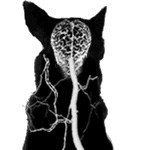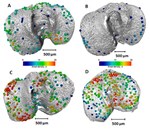Search - Research
11 - 20 of 388 results
-
Researchers from Royal Veterinary College (RVC) have found that the effectiveness of testing anti-epileptic drugs (AEDs) for canine epilepsy is far below the expected standard.
The RVC’s canine epilepsy clinic has carried out the first ever systematic review on the efficacy of all AEDs in canine epilepsy. The aim of the study was to assess the effectiveness of each individual AED by analysing all available data that has …The RVC’s canine epilepsy clinic has carried out the first ever systematic review on the efficacy …
-
VetCompass study examines the association between neutering and idiopathic epilepsy in Labradors and Border collies
There is sparse published scientific data on the associations between neutering and the severity and survival of dogs with idiopathic epilepsy. This study used VetCompass™ data on 117 Labrador retrievers and 57 Border collies, diagnosed with … -
RVC research finds memory-boosting effects of a dietary supplement for cognitively-impaired dogs with epilepsy
Changing the fat profile of the diet of dogs with hard-to-treat epilepsy can not only improve their seizure control, but also their cognitive abilitiesNew research from the Royal Veterinary College (RVC), funded by The American Kennel Club Canine …
-
Study reveals substantial negative impacts on owners’ lives when their dog develops epilepsy
The qualitative study, led by the RVC, explored the impact of owning a dog with epilepsy, aiming to provide better support and resources to help improve owner quality of lifeA study led by the Royal Veterinary College (RVC), which explored the impact of owning a dog with …
-
New BBSRC grant: Investigating the relationship between epilepsy, drug-resistance and affective disorders in the domestic dog
Investigating the relationship between epilepsy, drug-resistance and affective disorders in the domestic dogA new BBSRC grant has been awarded to Prof Holger Volk, Dr Rowena Packer and Dr Rachel Casey …
-
RVC research finds potential in ground-breaking new dietary treatment for canine epilepsy
Research shows that small changes to the diets of dogs with hard-to-treat epilepsy has the potential to reduce the number of seizures and improve the quality of life for affected dogs and their owners.Research conducted by the Royal Veterinary College (RVC), funded by The American Kennel Club Canine …
-
RVC study into canine epilepsy helps owners identify triggers and predict seizures before they happen
An important step in helping dog owners to have advance warning of seizures, but also to identify the triggers that can be avoided to help reduce the number of seizures their dog experiencesAn international study, which recruited owners of dogs diagnosed with epilepsy, has revealed …
-
RVC Skeletal Biology Group’s work showcased in the Diamond Light Source Annual Review Launch
Research shows evidence for a link between abnormal growth, altered loads placed upon the joint and osteoarthritis development which could help identify those at risk of developing osteoarthritisDiamond Light Source, the UK’s national synchrotron science facility, launched its Annual Review …
-
New RVC study first to reveal impact of vet-owner relationship on canine epilepsy management
New research from the Royal Veterinary College (RVC) explores the role of vet-owner relationships in the experience of owners of dogs with epilepsy. The study found that clearer owner expectations for treatment outcomes and the condition’s …New research from the Royal Veterinary College (RVC) explores the role of vet-owner relationships …
-
Presentation of RVC work at the Nairobi FAO regional subgroup on livestock
Dr Paula Dominguez-Salas was invited to present the preliminary results of the RVC/ILRI/LSHTM Seed project on the association of livestock value chains and maternal and child nutrition in low-income households of Nairobi, and also to present the …Dr Paula Dominguez-Salas was invited to present the preliminary results of the RVC/ILRI/LSHTM Seed …







